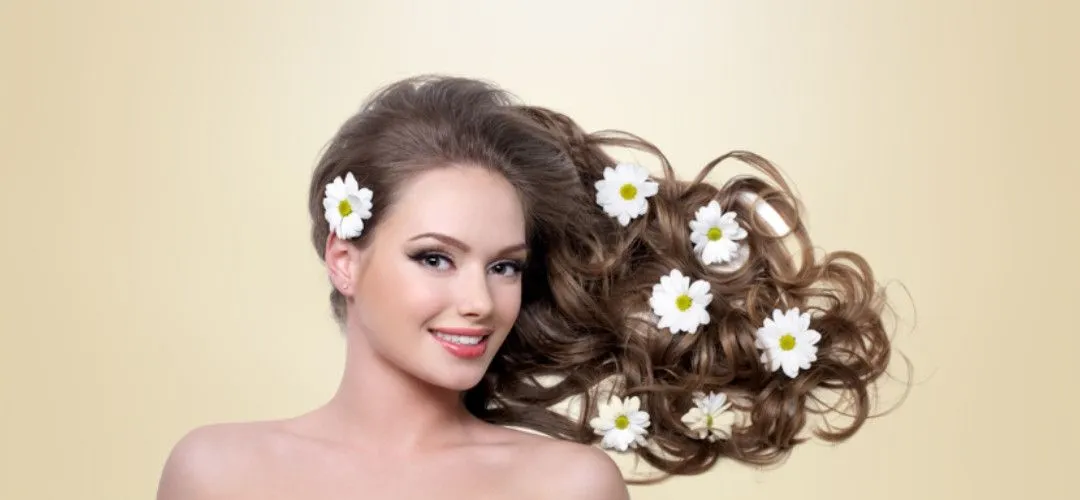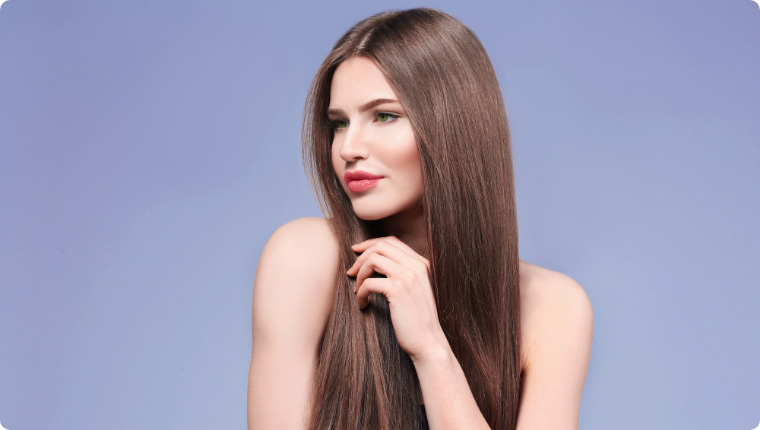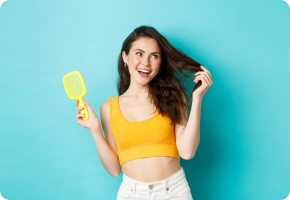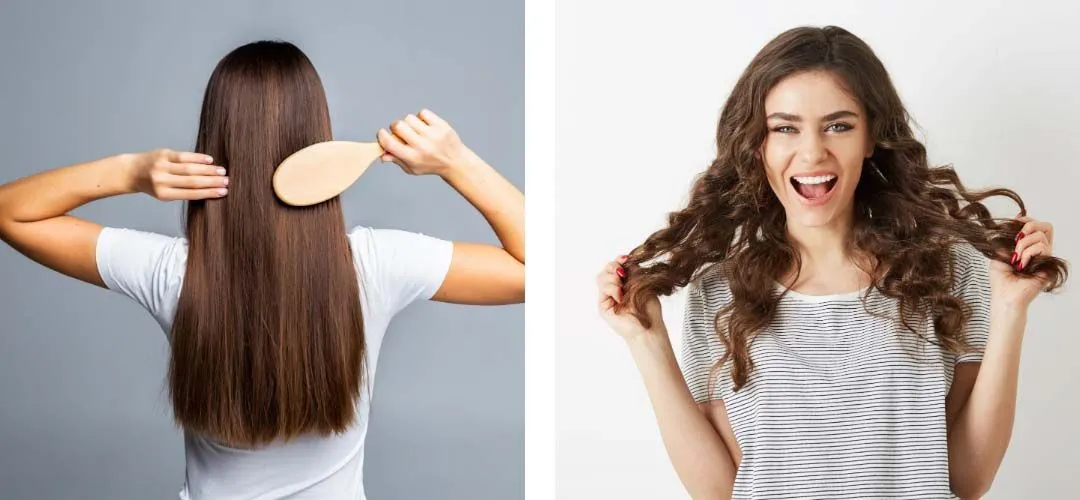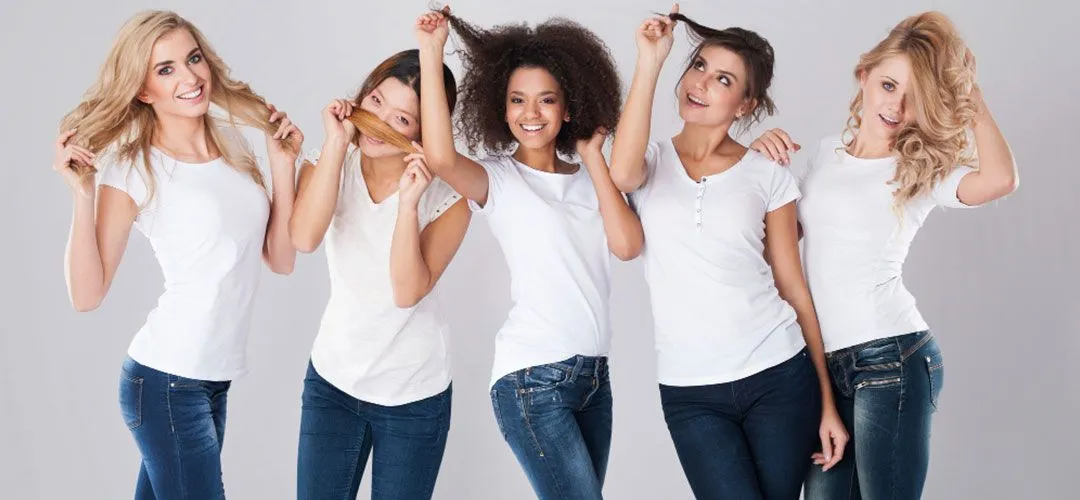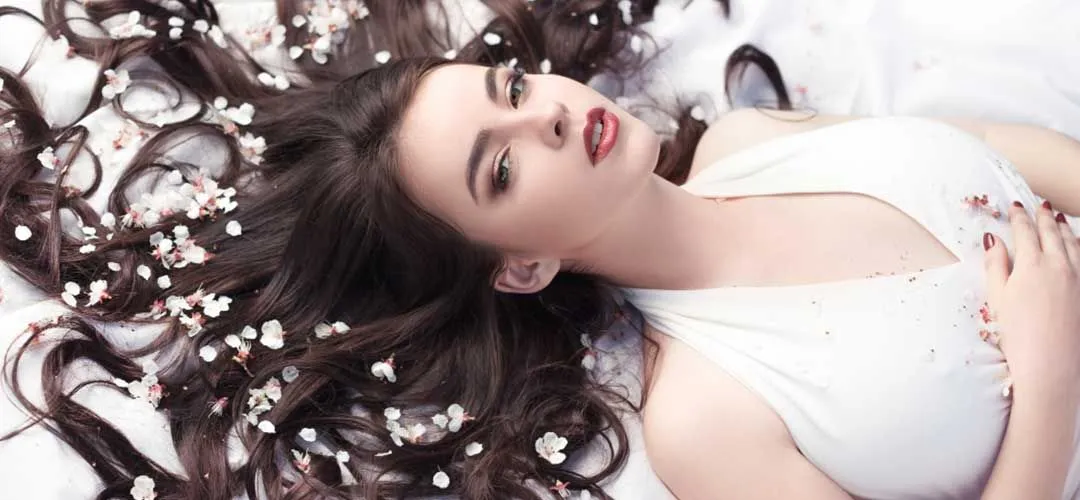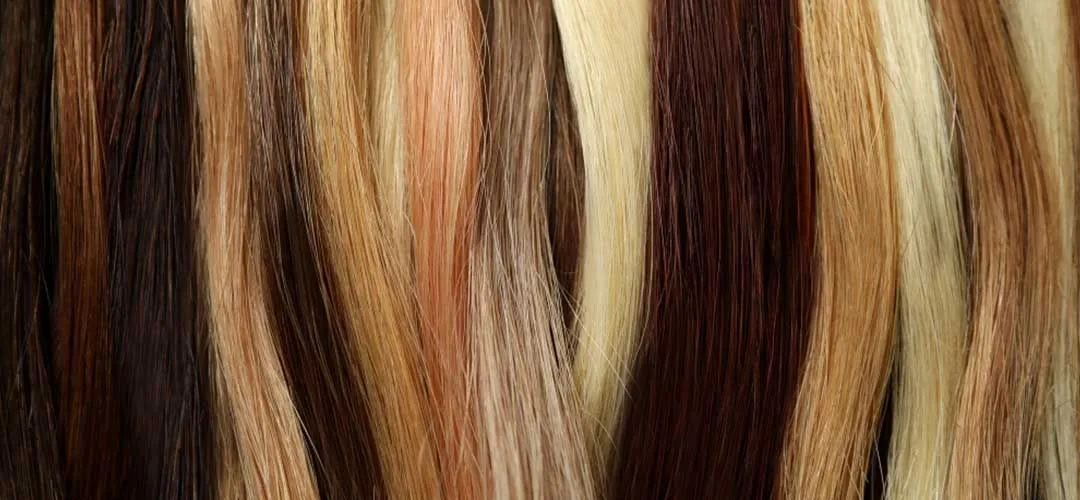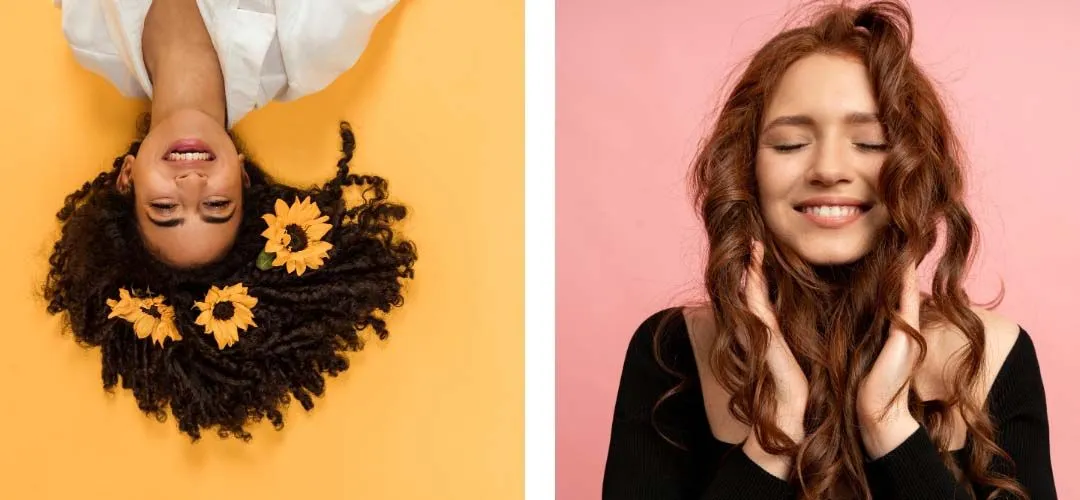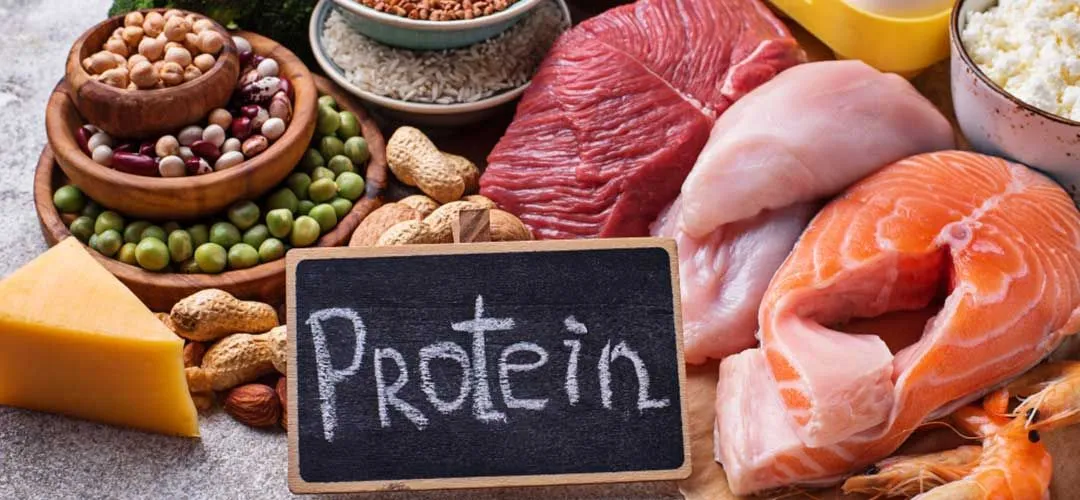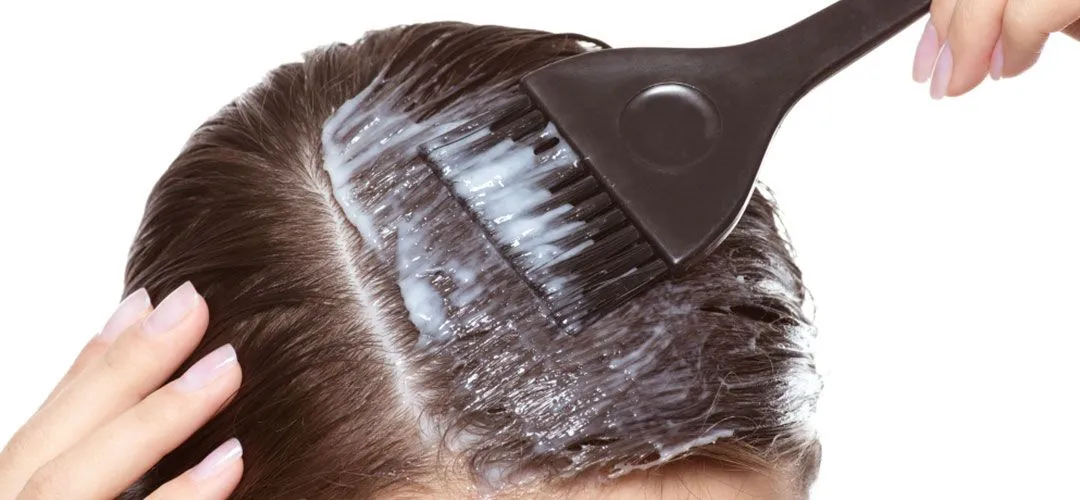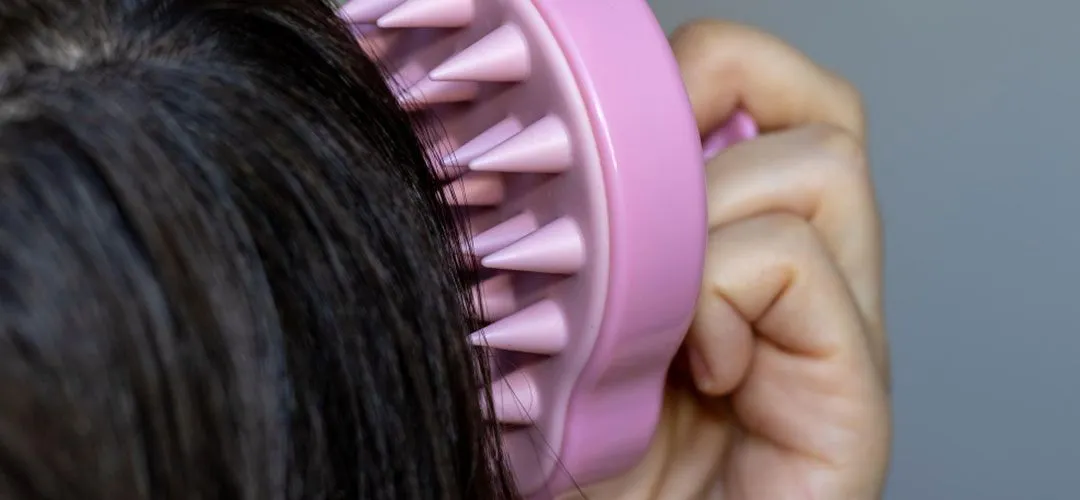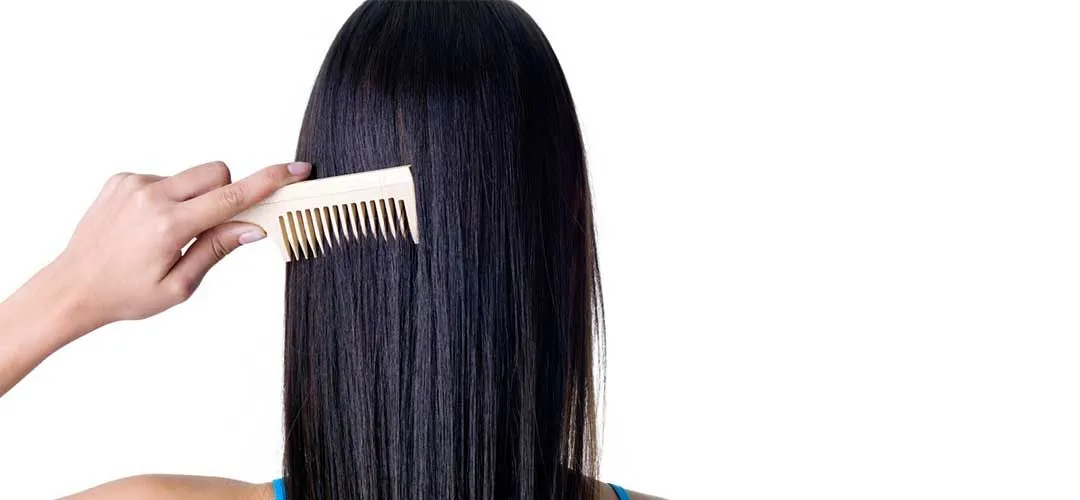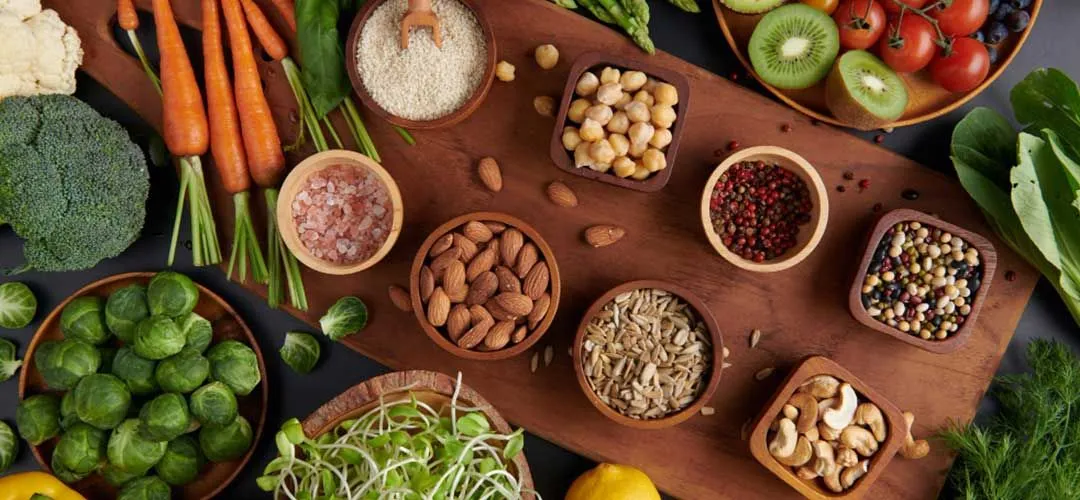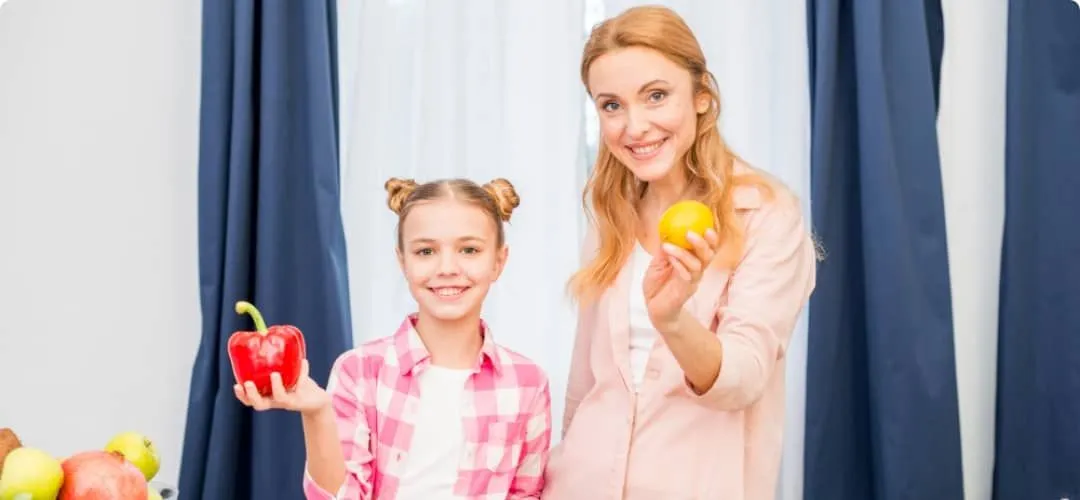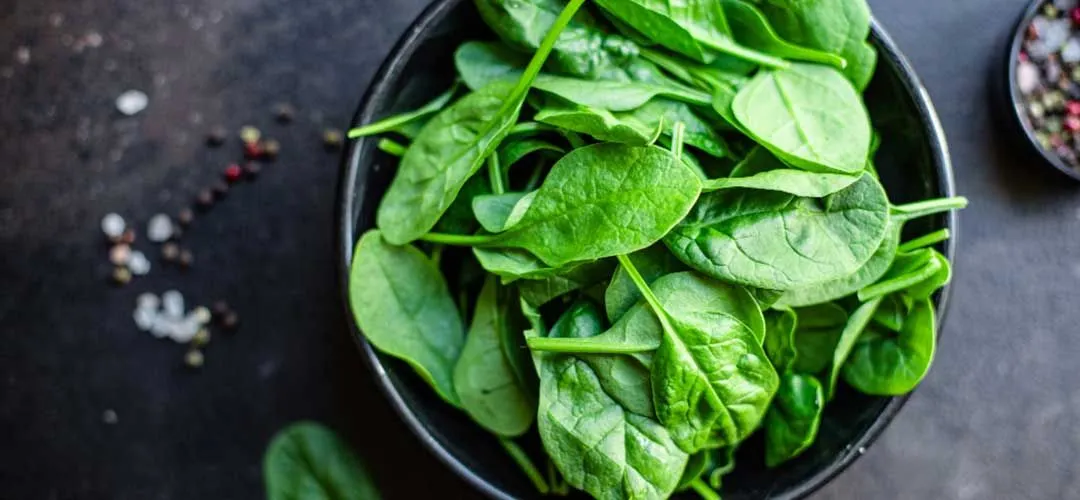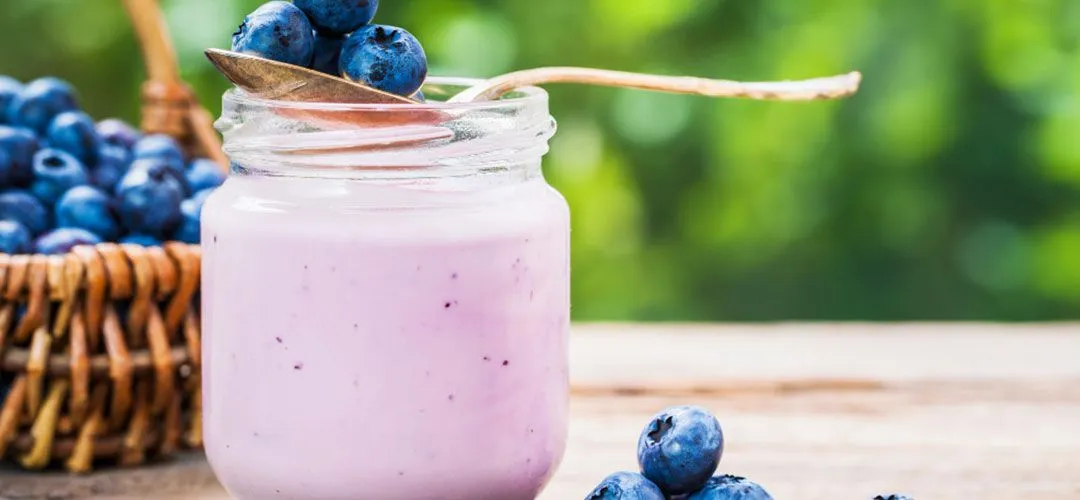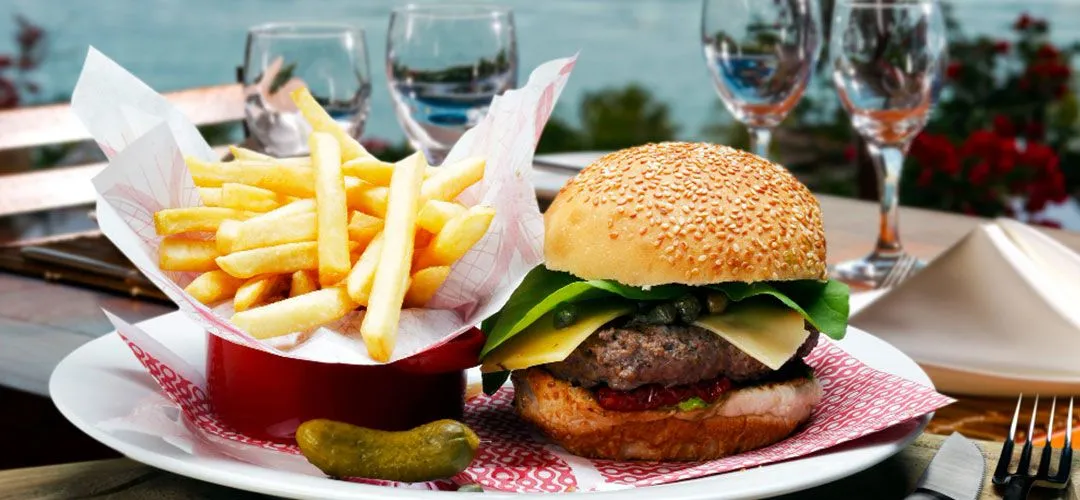Before we jump into the topic of human hair health, we will start with the very basics of the significance of hair on the head.
Everyone wants good-looking and healthy hair. It is one most important aspects of human beauty and personality. Moreover, hair plays one of the most influential roles in determining how others perceive the overall facial looks and gives indications - some quite bold, others almost silent.
But either way, there cannot be any question that hair is one of the most critical aspects of the human face and good looks. Moreover, it is one of the most cared-for factors by both women and men alike, as it forms the foundation for a confident social outlook and interaction, denoting looks.
Here is the summary of topics we will cover in this guide:
All About Hair
Natural Hair Growth
Maintain and Grow Hair Health Naturally
Healthy Nutrition - For Natural Hair Health
Natural Hair Growth
Maintain and grow hair health Naturally
Healthy Nutrition - for Natural hair health
So let us start with Natural human hair and the natural processes that make our hair.
Here is all about Natural Hair
Introduction
What is Natural Hair?
Natural Hair - The Worldwide Movement
Natural Hair & Beauty - Interconnection
Natural Hair Benefits
Natural Hair Growth
Natural Hair Colors
It's quite interesting why many people, especially many women worldwide, have decided to keep and sport their natural hair.
Some women feel more connected to their heritage when they wear their natural hair. Others simply like the way they look when their hair is in its natural state. And yet, some others believe that wearing their hair naturally is better for their health.
Natural hair is the hair you have naturally and without any interventions or chemical treatments - like straightened or processed with a relaxer. It is often wavy or curly and can be thick, thin, coarse, or fine.
Natural hair texture varies from head to head, and some people consider it more of a lifestyle than just a hairstyle. There are many different ways to care for and style natural hair, and there are hundreds — if not thousands — of products on the market specifically for natural hair.
Today, there is a significant movement for people to go back to their natural hair. Unlike the processed chemical-laden hair of the past, more and more people seek to return to their natural roots.
The natural hair movement is a cultural and social movement that began in the United States in the early 2000s among Black women who decided to stop chemically processing their hair. The campaign has since spread worldwide. And this bold group of women, who keep happy with their natural hair state, often style it in an afro, dreadlocks, or other Afro-centric styles.
There is a vast movement happening worldwide, and it's all about embracing natural hair. Women of all races and ethnicities choose to wear their hair in its natural state. And the number of people doing so is growing every day.
Natural Hair, Healthy Hair, & Hair Care are so interconnected with Human - Personality & Beauty.
The above is no science but pure nature at play - how everyone perceives others, especially on the first few looks. And thus goes the old saying - 'first impression is the last impression.'
Though there is no doubt that with time, we all have a broader view of the overall personality cult today - that is just not skin deep, but having a beautiful mind and heart alone, could be better served with good looks.
Perhaps, as much in the same way as our view of the fitness quotient that a person carries, nice-looking hair also reflects the same standards as a general perception.
At the very least, if a person takes enough effort to groom themselves, it also signals their hygiene, general attitude, and overall health outlook.
There are also many benefits to wearing natural hair. Some people may choose to go natural to avoid the damage caused by chemicals in relaxers and other hair products. Others may find that they have more styling options when they wear their hair in its natural state.
There are also natural linked hair-health benefits to wearing natural hair. First and foremost, it's healthy for your hair. When you wear natural hair, you let your hair breathe and retain its natural oils.
This helps your hair to grow long and strong. Additionally, natural hair is versatile, and you can style it in many different ways.
It's also cost-effective - you don't have to spend money on expensive hair products when you can use natural ingredients instead. Lastly, wearing natural hair is empowering and helps to promote self-love and acceptance.
So let's look at what signifies hair that looks good in the general rhetoric. It's the hair that has been well taken care of, natural hair kept well, or hair that has been treated to restore good health, mainly via home-based routines, that lean more towards natural remedies, healthy hair-friendly nutrition, and at-home easy hygiene.
But these sure look like a ton of things to do - something that would demand a lot of time, effort, and unnecessary cost that could turn out to be factors that most of us could imagine not doing so consistently.
Thus breaking the puzzle down into something very generic, easy to follow steps, flexible routines, leans toward natural (DIY) home-based remedies, food, and hair care, and saving money is the key to getting us to stay consistent towards such regimes.
So let's understand,
Hair is made up of 'Keratins,' which is a protein and is the building block of life for the hair and is also found in nails and skin in your body. These proteins are arranged in bundles that are surrounded by a lipid layer. The layer is what makes hair strong, shiny, and waterproof.
While the hair growth rate is around one-half inch per month, and the average human head has about 100,000 hairs, It is important to remember that it varies from person to person.
If you are an enthusiast, it may also be worth noting these crucial factors of natural hair growth and hair loss cycles in humans - What makes natural hair grow?
Every follicle can produce hair. An average person is born having about 100,000 hair follicles.
This number seems relatively short, but this only sheds light on the part of the answer. So, to look into this data in more detail, let's turn our heads toward what the science says:
First of all, the amount of hair depends on its color. Moreover, not only does the shade of hair plays an essential role, but also the skin quality accompanying it.
Our hair color is determined by the pigment cells in our scalp that produce melanin within the hair follicles, and they decline as we grow old, losing color.
The thicker the skin cover is, the stronger every hair strand would be, and so when it comes up, the lesser the place there is for them on the head. So blondes have the thinnest hair, and redheads - have the thickest.
According to the BioNumber Harvard Database, the number of hairs on humans for different hair colors goes between 90,000 - 150,000 and goes like this:
Therefore, the ones with the thickest hair have hairs conversely related to the numbers, meaning 'thicker the hair, lesser is the number of strands of hair on the head.'
So blondes have the top hair strands, followed by brunettes, then black-haired, and then red-haired people.
However, another critical factor should be considered in calculations for estimating average hair. Follicle hair doesn't grow constantly.
Here is what you need here:
Walking into a hair salon can be a daunting experience. Not only do you need to worry about the cost, but also the potential for damage that can occur during styling. Or You may have tried various products or treatments but have not had much success.
Besides, you may be looking for a more affordable and natural way to care for your hair. If so, you have come to the place where you will get a handful of practical and easy-to-do ideas to give it a shot. The good news is that growing healthy hair using natural methods is a real deal.
Here, we will post all the information you need to get started and provide some excellent tips that work on taking care of your hair at home.
Your hair holds one of the super important aspects of your appearance, and it's essential to take care of it properly to maintain a head full of healthy-looking hair. It can say a lot about your health.
Healthy hair is shiny, bouncy, and full of life. If your hair leans towards being - dry, brittle, frizzy, or damaged, it may be a sign that you're not taking adequate or the proper care of your hair.
There are a lot of easy-to-do things that can be done to keep your hair looking - healthy and robust.
1. Get enough protein in your diet.
Protein is essential for healthy and natural hair growth - your hair is made up of protein. So it's imperative to make sure you are eating plenty of protein-rich foods.
2. Eat a balanced diet rich in nutrients.
A rich and overall balanced diet that is full of the proper nutrients is a key to maintaining healthy hair. Eating plenty full of a diet rich with a mix of fruits, vegetables, and whole grains will provide your body with the nutrients that help produce strong, healthy hair.
3. Check if you need supplements.
Some essential nutrients for hair health include zinc, iron, vitamin A, and vitamin C. It could serve you well to get your body profile test done for these and see if you stand low on some of these nutrients. Besides being essential for your overall health, these are essentially your hair's best friends.
4. Drink plenty of water.
Dehydration can lead to dry, brittle hair, resulting in hair loss for you.
5. It is essential to avoid stress.
Stress can really lead to your hair becoming brittle and falling out. Try to relax and get enough sleep every night.
6. Avoid over-washing your hair too often.
When you choose to wash hair way too often, you also inadvertently end up washing off the natural oils that keep hair moistened and nourished. This results in hair loss, as this leads to dryness and hair breakage.
7. Avoid using any harsh chemicals
Avoid using products that have harsh chemicals on your hair, as these can strip your scalp and hair of its natural oils, leading to further dryness.
8. Try deep conditioning treatment.
- A deep conditioning treatment is one of the great ways to help replenish lost moisture and nutrients, leaving your hair healthy and strong, and it could pay you well to do it once a week.
9. Try to limit shampooing to 2-3 times a week.
Use a gentle shampoo and conditioner that will hydrate your hair, but do limit its usage only to 2-3 times weekly.
10. Avoid excessive heat styling.
Using a curling iron or hairdryer regularly can damage your hair and make it more prone to breakage, or use them with heat protectant sprays.
11. Avoid over-styling your hair to protect your hair
Over-styling means over-maneuvering of hair, making them look greasy, and can damage hair and scalp. It can also lead to scalp acne, dandruff, and excessive heat styling can damage the hair shaft and lead to hair loss.
12. Avoid tight hairstyles.
Tight hairstyles pull your hair, thus increasing stress on the hair follicles, which leads to hair loss. So try to wear your hair in loose styles whenever possible.
13. Avoid pulling on your hair.
Pulling on your hair can damage the hair follicles and lead to hair loss. Try to avoid brushing or styling your hair when it is wet, and be gentle when combing or brushing your hair.
14. Consider using a scalp massager.
A scalp massager can help to improve blood circulation to the scalp and may help to reduce hair loss.
15. Try styling with safer products like a wet brush.
A wet brush will help distribute the product evenly through your hair, and it won't leave your hair looking greasy. Also, try not using any styling product too often.
16. Caress your hair with your fingers and palm
Soft, easy, and calm movements of your fingers and palm on your hair can help the scalp and hair re-nourish themselves with oils on the scalp and help remove some locks. Just remember to show love by being gentle.
17. Use good quality hair care products like shampoo and conditioner.
Many harsh shampoos and conditioners can strip your hair of its natural oils, leaving it dry and brittle.
18. Try a deep conditioning treatment once a week.
A deep conditioning treatment will help to replace lost moisture and nutrients, leaving your hair healthy and strong.
19. Use a heat protectant when styling your hair.
Using a heat protectant will help to prevent your hair from becoming damaged from the heat of styling tools.
20. Use a wide-tooth comb when brushing your hair.
Using a wide-tooth comb will help to avoid breaking your hair.
21. Try letting your hair dry naturally with air.
Sometimes, you could try and let your hair dry naturally – it's better for your hair and helps reduce breakage, which could come with towel drying your hair and could also make your hair too dry.
22. Get regular haircuts (the essential hygiene).
Getting haircuts done more frequently can help remove hair with damaged ends and, in turn, help restore healthy hair.
23. Avoid getting under the Sun for long.
Sometimes being under the Sun for too long gets too harsh for the hair. Depending on your location and season of the year, the prickling heat from the Sun could damage your hair. If the Sun is too hot, sport a hat and protect your hair on long direct exposures to the Sun.
24. Experiment with other good dermatology products.
Much of the better quality body wash products come well balanced with essential oils and moisturizers. Many could be labeled fit for use on skin and hair. Give them a careful try, and see if you get results that work well on your hair and make them smooth and soft. Sometimes you can get pleasant surprises.
Let s take a deep dive into Healthy Nutrition for Hair Health.
Introduction - The importance of good nutrition for hair health.
What kind of diet is best to eat for healthier hair?
What is a quick list of the proper diet for healthy hair?
The Best Super Foods to promote healthy and strong hair growth.
The best natural and food-based oils for super healthy hair.
Foods to avoid for healthy natural hair.
Best supplements for hair health.
As much as your body, your hair needs proper nutrition to be healthy and strong and grow well. Thus having a well-balanced diet rich in nutrition is absolutely essential for your hair health and must contain fruits, vegetables, whole grains, and nuts.
Eating a balanced diet of protein, vitamins, and minerals helps to keep your hair strong, healthy, and looking its best.
In order to have lustrous locks that are free from damage, it is crucial to focus on incorporating plenty of vitamins and minerals into your daily diet.
A healthy diet is essential for maintaining healthy hair. Some specific nutrients that are necessary for healthy hair include protein, iron, zinc, omega-3 fatty acids, and vitamin-A.
Here are some excellent tips for a diet rich enough for maintaining and growing healthier hair:
1. Eat plenty of protein.
Protein is essential for healthy hair growth. Our hair is made up of the building blocks of life - proteins, so it's necessary to eat plenty of protein-rich foods. Choose lean-protein food sources such as fish, chicken, tofu, and legumes. Eggs are super-rich in proteins you need.
2. Eat plenty of fruits and vegetables.
Fresh fruits and vegetable produce are full of vital vitamins and minerals essential for the excellent health of your hair. Include a variety of food with different colors in your diet to get the most benefit.
3. Drink plenty of water.
Water helps to hydrate the hair follicles and keep them healthy. So be sure to drink plenty of water each day, especially if you exercise. It's also essential to have plenty of water all day long, as dehydration can lead to dry and brittle hair.
4. Vitamin-A & Vitamin-E for your hair.
Vitamin-A is essential for sebum production, which helps condition your hair. It is found in many leafy vegetables, like spinach, and is a must to have.
5 . Omega-3 fatty acids.
Omega-3 is one of the essential nutrients that help keep your hair growth and hair health. Some really rich Omega-3 foods include salmon, nuts and seeds, and avocados.
Here is the 'All Essential Nutrients' checklist that must be present in your diet for naturally healthy - strong, and beautiful hair:
1. Salmon
Salmon is an excellent source of omega-3 fatty acids essential for healthy hair. They help keep the scalp healthy and promote hair growth.
2. Walnuts
Walnuts are another high-omega-3 food that is great for your hair. They help moisturize the scalp and keep the hair follicles healthy.
3. Spinach
Spinach is packed with nutrients that are essential for healthy hair. It is high in vitamin A, C, and E and iron and magnesium. All of which promote healthy hair growth.
4. Blueberries
Blueberries are a great natural source of rich antioxidants, which help protect the scalp from free radical damage that can lead to hair loss. They also contain vitamin C, which helps promote collagen production in the scalp.
5. Eggs
Eggs are one of the super best sources of protein, biotin, and other essential nutrients for healthy hair. They help rebuild damaged hair follicles and promote new hair growth.
6. Apple Cider Vinegar
Apple cider vinegar is not just a tremendous natural detoxer that helps balance stomach acidity but also acts as one natural hair clarifier and scalp detoxifier. It helps to get rid of the build-up on the surface of the scalp that can clog the hair follicles, depriving them of nutrients and leading to hair loss. Besides, it balances the pH of the scalp, which can help reduce hair loss.
1. Coconut Oil
Coconut oil (not chemically adulterated) is an excellent natural moisturizer, and it brings the nourishment needed for your scalp and hair follicles. It also helps protect the scalp from sun damage and other environmental factors that can lead to hair loss.
2. Castor Oil
Castor oil acts as a substance that helps retain moisture (a natural humectant) and nourishes the hair follicles. It also helps promote healthy hair growth by nourishing the hair and stimulating blood circulation to the scalp.
3. Lavender Oil
Lavender oil is a natural anti-inflammatory and antiseptic that helps reduce inflammation and itching on the scalp. It also helps kill bacteria and fungus that can cause hair loss.
4. Rosemary Oil
Rosemary oil is a natural circulatory stimulant that helps by improving the blood circulation cycle to the scalp. It also helps promote hair growth by strengthening the hair follicles.
There are a few foods that you should avoid if you want to maintain healthy, natural hair. These foods can cause your hair to become dry, thin, brittle, and break easily.
Many foods you may be eating on a daily basis are not suitable for your hair. If you, too, would like to keep your hair healthy and strong, you will want to avoid these foods.
1. Fried Foods:
Fried foods are mostly not so friendly for your body or hair, as they are high in unhealthy fats and oils, clog your hair follicles, and lead to hair loss.
2. Sugar:
Consuming too much sugar too often is not a good diet marker and can lead to inflammation and damage your hair follicles from the root, as it decreases oil production on your scalp. This will lead to dry, brittle hair more prone to breakage.
3. Processed Foods:
Foods that are high in unhealthy fats, chemicals, and sodium can lead to inflammation and hair loss.
4. Diary:
Another food to avoid is dairy. Dairy products contain high cholesterol and saturated fat levels, clog your hair follicles, and prevent hair growth.
They can also cause your scalp to become itchy and irritated. So if you're looking to improve your hair growth, it's best to restrict or keep in check your diary intake, as adequately required by your body, and not too much of it.
5. Alcohol:
Excessive alcohol intake is never good in any way and can cause dehydration, which can lead to hair loss. In addition, it's essential to avoid excessive amounts of alcohol. We're not saying alcohol intoxicates your hair, lol, but besides taking you on a high and your brain on a trip, it also affects your hair health.
Too much alcohol can weaken your hair follicles and make your hair more prone to falling out. It can also make your scalp go dry and itchy. And it's also an overall health hazard if not taken in moderation and not too frequently.
6. Smoking:
Cigarette smoke contains carcinogens, which can damage hair follicles and cause hair loss. And what is not being damaged in your body anyway with smoking? Take a good, serious, and conscious note!
01
Hair is made up of a super protein called keratin, and this guy is a tough one. Hair health is influenced by many factors, including genetics, diet, and lifestyle, all of which regulate keratin production by your body.
02
While some people are lucky and don't have to worry about their hair, others have to take special care to keep their locks looking good. Thankfully, there are a few supplements that can help improve hair health.
03
There are a lot of nutrient supplements on the market that claim to help improve hair health. However, not all supplements are created equal or end up helping all. Some are more effective than others at helping to promote healthy hair growth.
04
The best supplements for hair health can help improve the appearance of hair, make it stronger, and reduce hair fall.
Here is a list you need - The Top (10) Best Supplements for Hair Health:
Conclusion
We're Done!
Wrapping it up -
If you have reached all the way to the bottom, either you have read nothing, or you didn't leave anything. If you are one of the later ones, congratulations, and good luck - we hope you do great with your hair, armed with the information that is easy and practical.
The ones who have simply jumped to the bottom, we suggest it will serve you well if you give a good look or jump to the information you need the most, but either way, do take something that would help you build your way up on getting healthy, strong, natural hair that looks good on you.
We believe three kinds of people will reach the bottom WITHOUT reading the article above in detail.
1. You are bald, and you love to sport it on your head!
No problem there; We hope you still enjoy why others are taking so much pain when you love your looks as-is and does not require you to work things up here.
2. You are not so interested, only curious.
That's ok, and yet, thanks for hanging out; we hope you still had some fun and info that works for you.
3. You are interested but don't have enough time.
Well, guys, we have articulated the information in this post to have the structure to get to the topic of information you are interested in straight. Simply give it another shot and jump on the heading of your choice.
Thanks to everyone from our team - Domain experts (Health and Haircare), Nutritionists on our panel, editorial team, factual team, content and marketing teams, and everyone else.
And in turn, we all thank you collectively and hope it brings you meaning and substance for your purpose, or simply information and fun.
